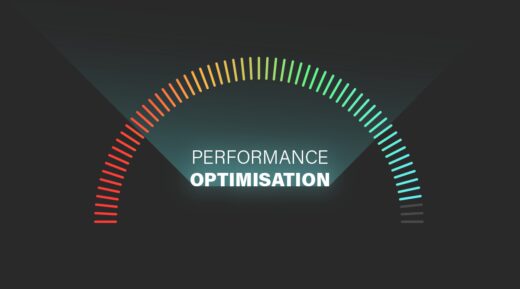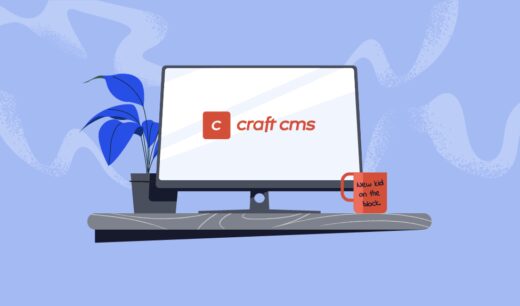You’ve launched your new website. Now What?
8 min read

So many clients come to us with the misconception that launching their website is the final destination, the end of the game; job done, box ticked!
Nothing could be further from the truth. Launching your website is just the first step of your digital journey; it is the foundation of your online presence and the core around which you can build a solid and robust digital strategy.
No matter how optimised a website is, how great the user experience is, how fast it is, and how well it converts visitors into customers - if you aren’t proactively working to drive traffic to the site, it won’t deliver results. Those who think this is not the case will be sorely disappointed.
So you’ve got your new performance optimised, search optimised, conversion optimised website…. now what?
1. Set up Google Analytics and Google Search Console
Any reputable digital agency should integrate Google Analytics and Search Console, along with relevant Event tracking as part of their pre go-live activities, but if they haven’t, ensure you put this in place asap.
Both Google Analytics and Search Console are free tools that help to track and measure how your site is performing. Once these tools are integrated into your site you can measure how many people are coming to your website, how long they are spending on it, which pages they are engaging with, where they are coming from, what keywords they are using to get there, and lots lots more.
This gives you the insight you need to measure the impact of your online (and offline) marketing activities and determine the effect they are having on your website traffic. Insight and information is power - once you've got it, use it to tweak and iterate both your marketing activities and your site content to boost traffic and increase conversions.
2. Google My Business Listing
Another free service, Google My Business, is a listing service for businesses with a physical address. Google My Business boosts your online visibility to people who are searching in your local area and increases your online presence across Google Search and Maps.
Set up your Google My Business page and verify your physical address (you will get a verification code posted to you) to confirm your location. Be as descriptive as you can in your listing and ensure all of your details are completed in full. Take special care in choosing your categories because these will determine which keywords your business will show up for in the Google Places search results.
Once you’ve got your Google My Business page, encourage your clients and customers to leave reviews. Reviews not only help build credibility and trust (your star rating will show directly in Google search results), they also help boost your position in Search (Google trusts businesses people trust). It’s important that you build reviews organically and naturally over time otherwise you will be penalised, so don’t go mad all in one go!
Adding photographs of your business and regular posts, such as news about your business, offers and events, will also build brand awareness and encourage people to click through to your website.
3. Link building
To get your new site to rank in the SERPs, you need to get inbound links from other reputable websites. This is because a large page ranking factor is the amount of authority or value passed to the page through backlinks from external sites. This value is referred to as ‘link juice’ or ‘link equity’.
All backlinks (from reputable sites) help, but the higher the domain authority, trust authority and relevance of the site linking to the page, the more Google rates it. It’s therefore important to gain quality backlinks from trusted and relevant sites. Industry specific publications are a great place to start, as are business associations and organisations (such as the Chamber of Commerce), and local directories.
Listings are great but the sharing of one of your articles with a link back to your website to read the original is the holy grail, as this builds your reputation as a thought leader, as well as earning a great inbound link. This is where digital PR comes into its own.
4. Content Marketing
Content marketing is the consistent creation, publishing, and distribution of valuable content to attract and engage your target audience, and ultimately to move them into your conversion funnel. Instead of pitching your products or services directly, the idea of content marketing is to put relevant and useful information, that will help them solve their issues, in front of your potential customers.
As well as engaging users, content marketing is great for organic SEO as Google likes sites with fresh, unique content. Create a content plan for the next 3 months (1 article per week), using topics that you know your potential customers will be searching for and provide answers to their questions or concerns. You could also use this an an opportunity for keyword research.
Great content gets shared and republished, especially if you start to get a reputation as a thought leader, so content marketing is also a great link building strategy.
5. Amplification of content via social media
Once you’ve got great content you need to amplify it across digital channels, including social media (posting it and sharing it in relevant groups) using techniques to make it more discoverable. The idea is to use your content to grab the attention of and engage with individuals and groups of people who have a genuine interest in or need for your product or service. Over time, regular amplification of your content will drive potential customers to your site, providing a steady stream of inbound traffic.
6. Build a GDPR compliant email marketing list
Email marketing may seem old-hat but if you are successful in building a database of GDPR compliant subscribers, who have a genuine interest in your product or service, it can be incredibly effective. As well as using email for promotional marketing (new product information, discount codes, seasonal promotions, etc) it is a great way of amplifying your content.
If your content is informative and helpful, people will want more of it, so make sure you include a newsletter subscription form on the bottom of your article page template, so users can easily subscribe for more.
7. Paid advertising
As an agency, we advocate organic search engine optimisation (SEO) over paid search engine marketing (SEM). However, we recognise that PPC does have a place, particularly for brand-new websites which haven’t yet built domain / page authority.
Google AdWords is the best known SEM PPC ad platform. As the name suggests, pay per click only charges you based on the click-throughs you receive to your site, so it guarantees traffic to your website. However, remember that your adverts stop being displayed when you stop paying.
8. Measure, tweak, repeat
You digital presence is a living thing, an ongoing process - it is never ever a job finished. It is important that you track the performance of your website on an ongoing basis and iterate to improve it. Small changes, such as adding a quote, changing the colour of a button or moving a call to action block higher up a page, can make significant improvements in conversions, so keep split testing and trying and tweaking to ensure continuous improvement.
These tactics are just the tip of the iceberg, but are a good starting point and over time you will find that one starts to feed the other. No matter what strategy you use to drive traffic to your site, it’s incredibly important to measure your results, experiment with new approaches and tweak your tactics until you have a better overall strategy.
At Abstrakt, we are a results driven agency and we encourage all of our digital clients to support their website launches with a robust digital strategy, either with the assistance of our digital marketing team, the help of another agency or independently.
If you are looking for support to drive traffic to your new website, get in touch to speak to one of our digital marketers about your project and our website launch services.
Please note: This article assumes that you have got a performance optimised, search optimised, responsive website. If this is not the case take care of your website first. Dedicating time effort and money to digital marketing activities to drive traffic to a site which isn’t performing is false economy, as those hard earned leads simply won’t convert, and worse still will get a poor user experience and a poor perception of your business. Not sure how your website is performing? You can speak to us about a website audit too.

Lauren Williams
Lauren has decades of experience forming authentic client partnerships and has a genuine desire to create better agency-client relationships.
She has specialist knowledge in digital strategy and digital branding.
Connect on LinkedIn.
Why website performance matters
4 min read

Need a digital agency to adopt your Craft website?
3 min read
